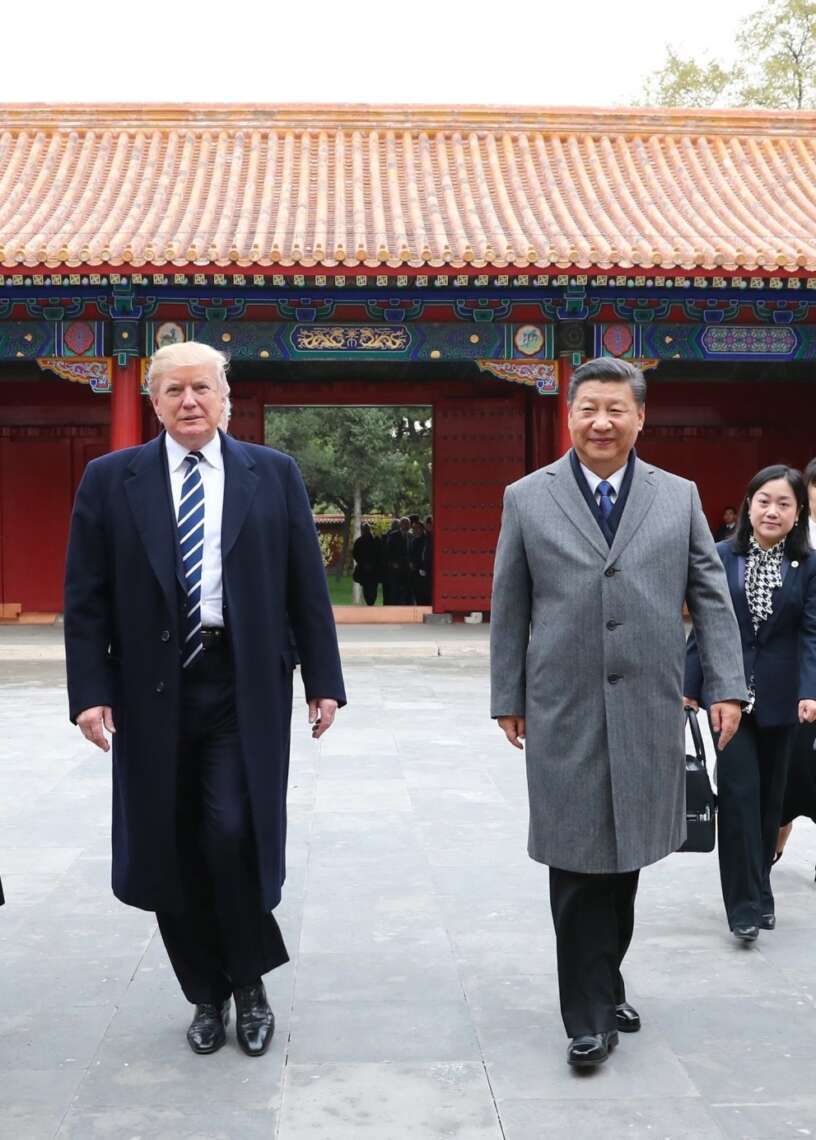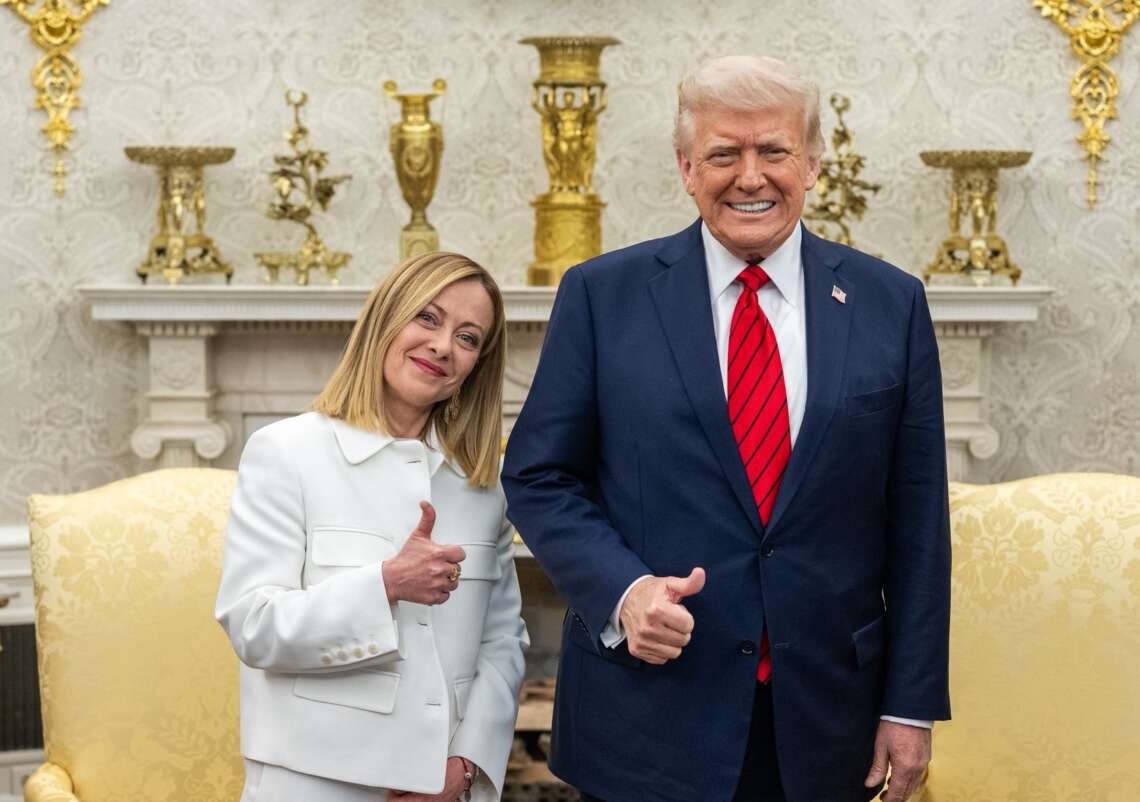Trump has expressed confidence about reaching a “very good” trade deal with China, even as the US imposed steep tariffs of up to 245 per cent on Chinese imports in response to Beijing’s retaliatory actions
China will pay no attention if the United States continues to play the “tariff numbers game,” China’s foreign ministry said on Thursday, after the White House outline how China faces tariffs of up to 245 percent due to its retaliatory actions.
In a fact sheet, the White House said China’s total duties include the latest reciprocal tariff of 125 percent, a 20 percent tariff to address the fentanyl crisis, and tariffs of between 7.5 percent and 100 percent on specific goods to address unfair trade practices.
President Donald Trump announced additional tariffs on all countries two weeks ago, before suddenly rolling back higher “reciprocal tariffs” for dozens of countries while keeping punishing duties on China.
Beijing raised its own levies on US goods in response and has not sought talks, which it says can only be conducted on the basis of mutual respect and equality. Meanwhile, many other nations have begun looking at bilateral deals with Washington.
Last week, China also filed a new complaint with the World Trade Organization expressing “grave concern” over US tariffs, accusing Washington of violating the global trade body’s rules.
China this week unexpectedly appointed a new trade negotiator who would be key in any talks to resolve the escalating tariff war, replacing trade tsar Wang Shouwen with Li Chenggang, its envoy to the WTO.
Washington said Trump was open to making a trade deal with China but Beijing should make the first move, insisting that China needed “our money.”
Meanwhile, Trump on Thursday expressed confidence about reaching a “very good” trade deal with China, even as the US imposed steep tariffs of up to 245 per cent on Chinese imports in response to Beijing’s retaliatory actions.
“We’re going to make a deal. I think we’re going to make a very good deal with China,” Trump said, as reported by The Hill. He also told reporters he thought the U.S. would have “very little problem making a deal with Europe or anybody else.”
Trump’s remarks came during the visit of Italian Prime Minister Giorgia Meloni to the White House, where he also expressed confidence in reaching a trade deal with the European Union (EU) before the 90-day pause on reciprocal tariffs ends.
According to a White House fact sheet, China’s retaliatory actions have resulted in up to a 245 per cent tariff on imports to the United States. Prior to the latest revision, a 145 per cent tariff was being levied on Chinese exports to the United States.
Reacting to the White House’s statement claiming China now faces up to 245 per cent tariffs on imports to the US, Chinese Foreign Ministry spokesperson Lin Jian said they should ask the US side for the “specific tax rate figures.”
Lin said that China has repeatedly stated its solemn position on the tariff issue. He said that the tariff war was initiated by the US, and that Beijing has taken countermeasures to protect its legitimate rights and interests and international fairness and justice, terming it completely “reasonable and legal.”
He noted that tariffs and trade wars have no winner. However, he said that China does not want to fight these wars, but is not scared of them. He expressed China’s commitment to joining hands and removing barriers.
Meanwhile, Malaysia and China have signed numerous agreements to deepen cooperation between the two countries during Chinese President Xi Jinping’s recent visit to Malaysia, amid Beijing’s trade war with Washington, DC.
Malaysia was the second stop on Xi Jinping’s three-nation tour of Southeast Asia, which also included Vietnam and Cambodia. During the three-day State visit to Malaysia at the invitation of the King Sultan Ibrahim, Xi touted a “new golden era” of Chinese-Malaysian relations, following the 50th anniversary of diplomatic ties last year. The king announced new cooperation between the countries in various fields, including artificial intelligence.
Malaysian Communication Minister Fahmi Fadzil stated that a total of 31 MoUs (memoranda of understanding) were signed by the two leaders during the visit, which he termed “among the most significant achievements in our history,” according to Bernama news agency.
A joint statement released at the end of Xi’s State visit stated that both sides agreed to build a high-level strategic China-Malaysia community with a shared future to accelerate their modernisation efforts and jointly promote regional and global prosperity and stability.
They also reaffirmed their commitment to enhancing cooperation under the United Nations, the World Trade Organisation, the World Health Organisation, and BRICS.
Xi met with Malaysian Prime Minister Anwar Ibrahim in Putrajaya on Wednesday, and the talks covered bilateral relations and the current economic landscape, according to Malaysian Foreign Minister Mohamad Hasan, as reported by the Bernama news agency.













